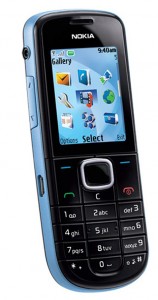 DES MOINES – Attorney General Tom Miller applauded the Federal Communications Commission’s recent move that clears the way for phone companies to block certain types of calls that are likely fraudulent, which is the top consumer complaint in Iowa and nationwide.
DES MOINES – Attorney General Tom Miller applauded the Federal Communications Commission’s recent move that clears the way for phone companies to block certain types of calls that are likely fraudulent, which is the top consumer complaint in Iowa and nationwide.
The FCC approved new rules that allow telecommunications providers to block robocalls that appear to be from telephone numbers that do not or cannot make outgoing calls, without running afoul of the FCC’s call completion rules.
“This is something that I, along with my colleagues in other states, loudly and clearly asked the FCC to do, and I’m really pleased the Commission listened,” Miller said. “Iowans call our office every single day to complain about these fraudulent calls they get every day,” Miller added. “Thousands and thousands of Iowans have been scammed out of money because their caller ID display backed up what the caller told them—for example, that the IRS was on the line and they owed money.”
In July, Miller joined a bipartisan group of 30 state attorneys general in a letter to the FCC calling on the agency to adopt new rules to help address the robocall and call spoofing problem. Spoofing occurs when a caller deliberately falsifies the information transmitted to your caller ID display to disguise their identity.
The new rules will allow providers to block calls purporting to be from a phone number placed on a “do not originate” list by the number’s subscriber. The rules will also allow providers to block calls purporting to be from invalid numbers, like those with area codes that don’t exist, from numbers that have not been assigned to a provider, and from numbers allocated to a provider but not currently in use.
To minimize blocking of lawful calls, the FCC’s rules encourage voice service providers that elect to block calls to establish a simple way to identify and fix blocking errors. The rules also prohibit providers from blocking 911 emergency calls.
“I encourage telecom providers to act on this as quickly as they can,” Miller said. “These changes can’t come soon enough.”
Unwanted calls, including illegal robocalls, are the top consumer complaint at the FCC, with more than 200,000 received annually. Some private analyses estimate that U.S. consumers received approximately 2.4 billion robocalls per month in 2016. Advancements in technology make it cheap and easy to make robocalls and to “spoof” Caller ID information to hide the caller’s true identity.
The ongoing “IRS scam” is a leading example, which continues to cost victims significant losses in Iowa and nationwide. Aggressive callers—either live or through robocalls—claim to represent the IRS. The callers, who are generally located in foreign countries, demand immediate payment for supposed back-taxes or penalties, and threaten immediate arrest. Caller ID displays are often spoofed to help further the scam, and may show an actual IRS number, fake caller information, or may be blocked.
Such calls appear to be legitimate to those who receive them and can result in fraud or identity theft.
The FCC provides advice to consumers about caller-ID spoofing:
- You may not be able to tell right away if an incoming call is spoofed. Be careful about responding to any request for personal identifying information.
- Never give out personal information such as account numbers, Social Security numbers, mother’s maiden names, passwords or other identifying information in response to unexpected calls or if you are at all suspicious.
- If you get an inquiry from someone who says they represent a company or a government agency seeking personal information, hang up and call the phone number on your account statement, in the phone book or on the company’s or government agency’s website to verify the authenticity of the request.
- Use caution if you are being pressured for information immediately.
- If you have a voice mail account with your phone service, be sure to set a password for it. Some voicemail services are preset to allow access if you call in from your own phone number. A hacker could spoof your home phone number and gain access to your voice mail if you do not set a password.
- If you receive a call and you suspect caller ID information has been falsified, or you think the rules for protecting the privacy of your telephone number have been violated, you can file a complaint with the FCC.








